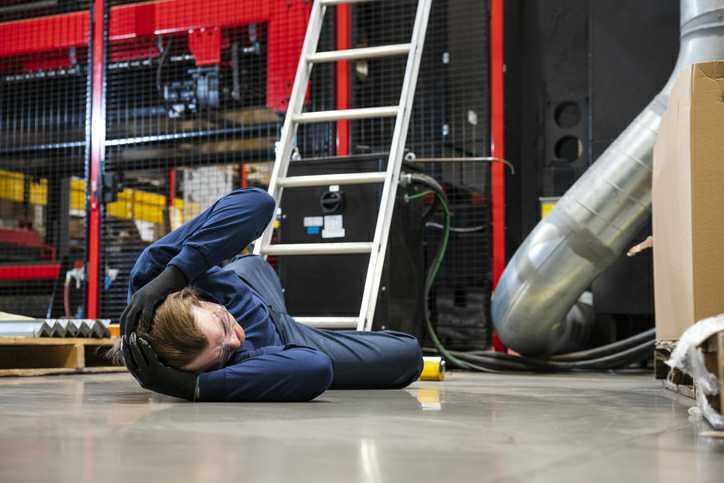The importance of ladder safety on the job

Ladders are used across many industries, including construction, retail, maintenance, utility work and grounds-keeping. Working from any height can be dangerous. It only takes one error in judgment to slip, or misstep to fall.
According to an article in Occupational Health & Safety, many serious injuries and deaths resulting from falls that happen from heights of less than 10 feet.
The dangers of working with ladders
There are a number of reasons why this can happen, including:
- Worker distraction: Something as common as a conversation between two workers or a cellphone notification can lead to distraction.
- Slippery surface on a ladder: Water, spilled liquids, and other slippery substances can significantly increase the risk of falling.
- Incorrect placement and use of a ladder: Ladders should be placed on an even ground surface and should be sturdy. Any wiggle room can lead to instability.
- Worker complacency: Some workers become overconfident when working on ladders and fail to take adequate safety precautions.
- Fatigue: Fatigue happens when workers don’t get enough sleep, work long hours, or overexert themselves on the job. Fatigued workers are more prone to errors that can lead to falls.
- Stress: Working too fast to keep up with demands can lead to poor safety practices and dangerous errors.
How can accidents involving ladders be prevented?
Another article by Occupational Safety & Health suggests doing the following to prevent ladder accidents:
- Ensure that the right ladder is being used: Workers should not be overextending or reaching to perform a task on a ladder. When workers find themselves doing this, then they are likely not using the right sized ladder for the job.
- Maintain three points of contact: When using a ladder, workers should maintain three points of contact: hands, knees, and feet. Hands and feet should firmly grip each step on the ladder and knees should make contact for added stability.
- Avoid overreaching: When using the right sized ladder, workers shouldn’t have to reach for an item or to perform a task. Instead, it would be better to readjust the ladder.
- Use the 4-1 ratio: For every four feet of ladder length used, the base should be moved pulled away from the wall by one foot.
- Ensure ladder is level: A ladder should never wobble or feel unsteady. Instead, it should be placed on an even surface or adjusted with an integrated leg leveler.
- Inspect ladder: It’s important to always inspect a ladder before using it. Check for dents, cracks, or damage to the legs, steps, or base.
- Watch out for electric conductivity: Those who work around electricity should avoid using aluminum or ladders made from other metals. Instead, fiberglass ladders (which are non-conductive) should be used to avoid electric shocks from occurring.
- Watch your step: About 20 percent of ladder-related injuries occur when someone misses the bottom step of a ladder. When stepping down from a ladder, be sure to watch your footing to avoid slipping and falling.
If you were injured in a ladder accident at work, you have the right to obtain workers’ compensation benefits to cover your medical expenses and lost wages. An experienced Massachusetts workers’ compensation attorney at The Law Offices of Deborah G. Kohl can help guide you through the process and maximize your chances of getting compensated.
To schedule your free case evaluation, contact us online or call us at 508-677-4900.

